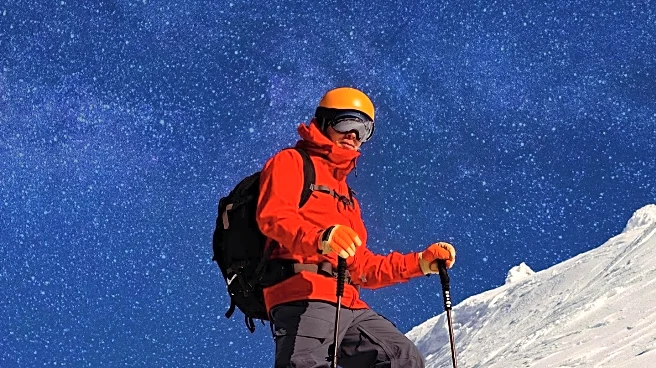What's Happening?
Darren Edwards, a British adventurer left paralyzed from a climbing accident, is set to attempt a world record by sit-skiing 137 miles across Antarctica to the South Pole. Edwards, who was paralyzed from the chest
down following a fall in North Wales in 2016, aims to surpass the previous record of 69 miles. He will ski for up to ten hours a day in sub-zero temperatures using specially modified poles. Edwards has previously completed several physical challenges, including kayaking 870 miles from Land’s End to John O’Groats in Scotland.
Why It's Important?
Edwards' attempt to break the world record is significant as it showcases the resilience and determination of individuals with disabilities. His journey highlights the potential for adaptive sports to empower and inspire those facing physical challenges. Edwards' efforts also aim to raise funds for spinal cord injury charity Wings for Life, potentially increasing awareness and support for research and rehabilitation initiatives. His story may encourage others to pursue their goals despite adversity, promoting inclusivity and innovation in sports.
What's Next?
Edwards will be supported by a team of adventurers, including explorer Lucy Shepherd and Chief Scout Dwayne Fields, in his record attempt. The journey is scheduled for next month, and Edwards aims to raise $131,653.50 for charity. The success of this endeavor could lead to increased visibility for adaptive sports and further fundraising efforts for spinal cord injury research. Edwards' achievement may also inspire future expeditions and challenges by individuals with disabilities.
Beyond the Headlines
Edwards' journey to the South Pole underscores the broader cultural shift towards recognizing and celebrating the achievements of individuals with disabilities. His story may contribute to changing perceptions and increasing opportunities for disabled athletes in various sports. The expedition also highlights the importance of innovation in adaptive equipment and techniques, potentially influencing future developments in the field.









